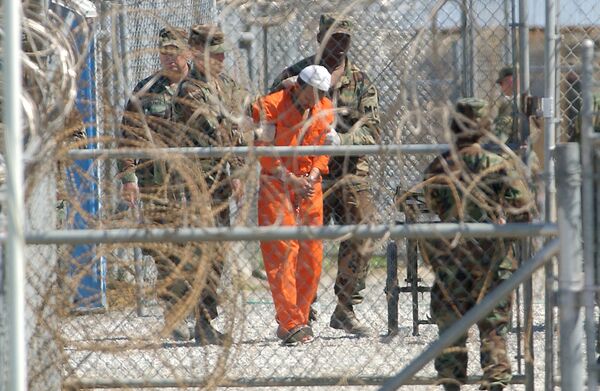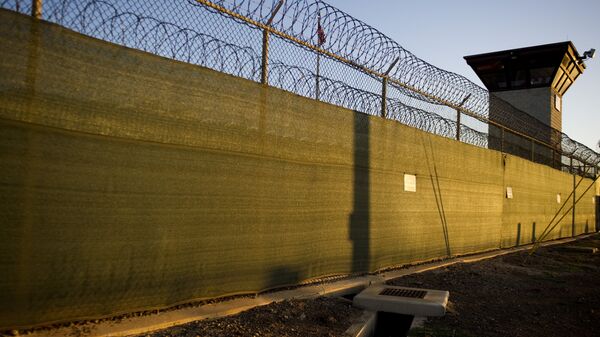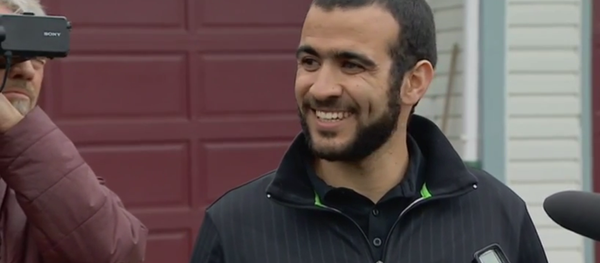On Wednesday, Trump said in his State of the Union address that he had just signed an order to keep the detention center at Guantanamo Bay, Cuba open indefinitely.
Trump’s predecessor, Barack Obama, attempted, although in vain, to shut down the camp, surrounded by controversy over arbitrary detention grounds, torture allegations and lack of access to proper judicial process for detainees.
US FIGHT ON TERROR
The intelligence agencies around the world might be reluctant to cooperate with the United States on detentions of terrorism suspects "because they will fear that will mean people being sent to Guantanamo," Andy Worthington, co-founder of the Close Guantanamo campaign, told Sputnik.

"My initial thoughts were that it was positive news … because terrorism is a problem … there are many countries, not just the US, Russia — within Syria, Iraq, all of the EU, everybody is fighting ISIS [Daesh] terrorism and that's exactly what Guantanamo Bay was created to do," Jennifer Breedon, a legal analyst specializing in Middle East Affairs, International Law, and Foreign Policy, told Sputnik.
Breedon praised the decision to keep the prison open, which, according to her, "completely overturns the Obama era doctrine."
LEGAL BLACK HOLE
Some of the Guantanamo detainees have been held there since it was set up in 2002, Yvonne Ridley, an author whose area of specialty includes the Global War on Terror and international security, stressed in an interview with Sputnik.
"I'd ask everyone reading this to think about what they've done and achieved in 16 years; some will have passed exams, developed careers, got married and had children. None of these detainees have had those opportunities and they've never had a chance to stand in an open court and get justice, either," Ridley said.
The legality of detentions in Guantanamo prison has been questioned by several human rights watchdogs, including Amnesty International and Human Rights Watch. Detainees have had a limited access to the options available to the suspects under the US law, including legal representation. There have also been reports of torture used in interrogations.
"This all began under US President George W Bush who dispensed with accountability in his administration and it seems the Trump Administration is carrying on in this shameful tradition," Ridley said.
Worthington pointed out that Trump’s executive order was largely "symbolic," because the detention center was not easy to close.
"There’s no automatic way in which the prison can close, it needs the effort of a president, and I suspect working with Congress, to actually come up with a plan," the activist said.
Obama’s efforts to close down the prison were opposed by the Congress. In January 2017, the then-president criticized those on the Capitol Hill who blocked Guantanamo closure in his letter to the Congress leaders, claiming that they put in jeopardy US relations with foreign allies and neglected the costs of the prison maintenance for the US taxpayer.

Worthington added that even the closure of the prison would not automatically mean the release of prisoners.
"So we’re back to square one of this being a pointless gesture on his part, which can only upset people around the world, I think," the campaigner said.
UN experts have been calling for the closure of the detention center for several years now, but there has been little progress so far and the situation does not seem likely to change in the near future.
The views and opinions expressed in this article are those of the author and do not necessarily reflect those of Sputnik.


